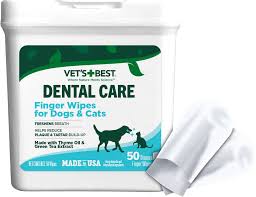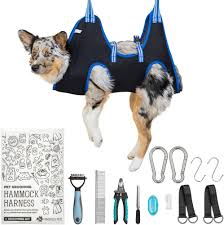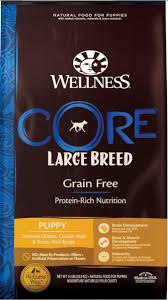The Importance of Dental Care for Your Dog
Just like humans, dogs require proper dental care to maintain good oral hygiene and overall health. Neglecting your dog’s dental health can lead to various issues such as bad breath, tooth decay, gum disease, and even more serious health problems.
Tips for Ensuring Your Dog’s Dental Health:
- Regular Brushing: Brush your dog’s teeth regularly using a dog-specific toothbrush and toothpaste. Start slowly to get your dog used to the process.
- Dental Chews and Toys: Provide dental chews and toys designed to help clean your dog’s teeth and massage their gums. These can also help reduce plaque and tartar buildup.
- Healthy Diet: Feed your dog a balanced diet that is good for their dental health. Avoid sugary treats that can contribute to tooth decay.
- Vet Check-ups: Schedule regular dental check-ups with your veterinarian to monitor your dog’s oral health and address any issues early on.
- Dental Treatments: Consider professional dental cleanings for your dog as recommended by your vet. These cleanings can help prevent serious dental problems.
Signs of Dental Problems in Dogs:
- Bad Breath
- Bleeding Gums
- Tooth Discoloration or Loss
- Drooling or Pawing at the Mouth
- Difficulty Eating or Chewing
By following these tips and being proactive about your dog’s dental care, you can help ensure that they maintain a healthy smile and overall well-being.
Top 6 Tips for Maintaining Your Dog’s Dental Health
- Brush your dog’s teeth regularly with a toothbrush and toothpaste made specifically for dogs.
- Provide dental chews or toys designed to promote good oral hygiene.
- Schedule regular dental check-ups with your veterinarian.
- Feed your dog a balanced diet that supports dental health.
- Avoid giving your dog human food that can be harmful to their teeth.
- Monitor your dog’s dental health and seek professional help if you notice any issues.
Brush your dog’s teeth regularly with a toothbrush and toothpaste made specifically for dogs.
Regularly brushing your dog’s teeth with a toothbrush and toothpaste formulated specifically for canine oral care is essential for maintaining your furry friend’s dental health. This practice helps prevent plaque and tartar buildup, reduces the risk of gum disease, and promotes fresh breath. Introducing this routine gradually and making it a positive experience can contribute to your dog’s overall well-being and ensure a healthy smile for years to come.
Provide dental chews or toys designed to promote good oral hygiene.
Providing dental chews or toys specifically designed to promote good oral hygiene is a beneficial practice for maintaining your dog’s dental health. These chews and toys not only help satisfy your dog’s natural urge to chew but also aid in reducing plaque and tartar buildup on their teeth. The chewing action can help massage the gums and strengthen teeth, contributing to overall oral hygiene. Introducing these dental chews or toys into your dog’s routine can be a fun and effective way to support their dental care regimen.
Schedule regular dental check-ups with your veterinarian.
It is essential to schedule regular dental check-ups with your veterinarian as part of your dog’s dental care routine. These check-ups allow the vet to assess your dog’s oral health, identify any potential issues early on, and provide necessary treatments or preventive measures. Regular dental exams help maintain your dog’s overall well-being and ensure that any dental problems are addressed promptly, leading to a healthier and happier furry companion.
Feed your dog a balanced diet that supports dental health.
Ensuring that your dog receives a balanced diet that promotes dental health is essential for their overall well-being. A diet rich in nutrients and specially formulated to support oral health can help prevent dental issues such as plaque and tartar buildup. By feeding your dog quality food that is beneficial for their teeth and gums, you are taking a proactive step in maintaining their dental hygiene and ensuring a healthy smile for your furry friend.
Avoid giving your dog human food that can be harmful to their teeth.
It is essential to avoid giving your dog human food that can be harmful to their teeth. Certain human foods, such as sugary snacks, hard candies, and sticky treats, can contribute to tooth decay and other dental issues in dogs. Additionally, foods like chocolate, grapes, and onions are toxic to dogs and can cause serious health problems. By sticking to a diet specifically designed for your dog’s nutritional needs and dental health, you can help prevent potential dental problems and keep their teeth strong and healthy.
Monitor your dog’s dental health and seek professional help if you notice any issues.
Monitoring your dog’s dental health is crucial for preventing serious oral problems. By regularly checking your dog’s teeth and gums, you can catch any issues early on. If you notice signs of dental problems such as bad breath, bleeding gums, or difficulty eating, it is important to seek professional help from a veterinarian. Professional dental care can address underlying issues and ensure that your dog’s oral health is properly taken care of. Remember, proactive monitoring and timely intervention can go a long way in maintaining your dog’s overall well-being.



